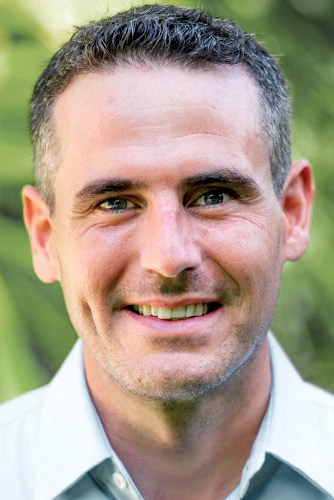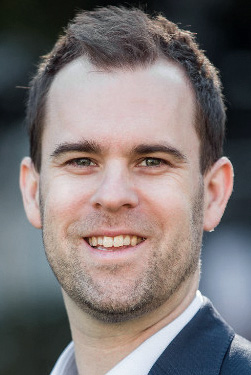

 In the United States, at least 25,000 brick and mortar businesses will close in 2020 due to the Coronavirus (source: Coresight). I believe this will only be the tip of the iceberg. The businesses that fight to stay alive will become 100% dependent on the Internet to generate their revenue. No longer able to rely on foot traffic to their old brick and mortars, the popularity and brand-ability of their websites will solely dictate their ability to survive in the coming years. more
In the United States, at least 25,000 brick and mortar businesses will close in 2020 due to the Coronavirus (source: Coresight). I believe this will only be the tip of the iceberg. The businesses that fight to stay alive will become 100% dependent on the Internet to generate their revenue. No longer able to rely on foot traffic to their old brick and mortars, the popularity and brand-ability of their websites will solely dictate their ability to survive in the coming years. more
 Section 230 of the Communications Decency Act (CDA), says that "No provider or user of an interactive computer service shall be treated as the publisher or speaker of any information provided by another information content provider." The law was passed in 1996 in order to shield ISPs that transported content or platforms that hosted it from lability. Bloggers were not responsible for comments on their posts, YouTube and Facebook were not responsible for things users posted, etc. more
Section 230 of the Communications Decency Act (CDA), says that "No provider or user of an interactive computer service shall be treated as the publisher or speaker of any information provided by another information content provider." The law was passed in 1996 in order to shield ISPs that transported content or platforms that hosted it from lability. Bloggers were not responsible for comments on their posts, YouTube and Facebook were not responsible for things users posted, etc. more
 When Doug Dawson wrote his article in February on Artificial Intelligence, he felt that #ai is saddled with too much hype as is its current counterpart, 5G. Certainly, there is a great deal of technology out there that deserves the hype and others that do not. After receiving a certification (Intro to AI) from IBM (while using Watson), I'm here to share that artificial intelligence, and its subsets of machine learning and deep learning definitely deserve a soundbite. more
When Doug Dawson wrote his article in February on Artificial Intelligence, he felt that #ai is saddled with too much hype as is its current counterpart, 5G. Certainly, there is a great deal of technology out there that deserves the hype and others that do not. After receiving a certification (Intro to AI) from IBM (while using Watson), I'm here to share that artificial intelligence, and its subsets of machine learning and deep learning definitely deserve a soundbite. more
 I stumbled upon a study conducted by Microsoft eons ago back in the paleolithic era of search; 2012... It is about how "premium domains" are perceived by the consumer when seeing them in the search results compared to a lower value "non-premium" domain. I like to use quotations sparingly, but I felt it was necessary because the varying opinions on premium v non-premium domains is a bridge I do not want to cross in this post. more
I stumbled upon a study conducted by Microsoft eons ago back in the paleolithic era of search; 2012... It is about how "premium domains" are perceived by the consumer when seeing them in the search results compared to a lower value "non-premium" domain. I like to use quotations sparingly, but I felt it was necessary because the varying opinions on premium v non-premium domains is a bridge I do not want to cross in this post. more
 Businesses across Europe face a new and challenging situation not seen in generations. A mass lockdown of society due to the coronavirus pandemic with thousands of businesses having been forced to send employees home. The societal impact is broad and deep; however, for ccTLD registries, beyond changes to how staff work, other business effects so far seem minimal. One aspect of registry business may, however, be changing. more
Businesses across Europe face a new and challenging situation not seen in generations. A mass lockdown of society due to the coronavirus pandemic with thousands of businesses having been forced to send employees home. The societal impact is broad and deep; however, for ccTLD registries, beyond changes to how staff work, other business effects so far seem minimal. One aspect of registry business may, however, be changing. more
According to the company, the rollout will continue over the next few weeks to confirm that no major issues are discovered as this new protocol is enabled. more
 It seems like most new technology today comes with a lot of hype. Just a few years ago, the press was full of predictions that we'd be awash with Internet of Thing sensors that would transform the way we live. We've heard similar claims for technologies like virtual reality, blockchain, and self-driving cars. I've written a lot about the massive hype surrounding 5G -- in my way of measuring things, there isn't any 5G in the world yet, but the cellular carriers are loudly proclaiming its everywhere. more
It seems like most new technology today comes with a lot of hype. Just a few years ago, the press was full of predictions that we'd be awash with Internet of Thing sensors that would transform the way we live. We've heard similar claims for technologies like virtual reality, blockchain, and self-driving cars. I've written a lot about the massive hype surrounding 5G -- in my way of measuring things, there isn't any 5G in the world yet, but the cellular carriers are loudly proclaiming its everywhere. more
A group of leading domain name registries and registrars have joined forces in the fight against abuse in the Domain Name System (DNS), by developing a "Framework to Address Abuse." Each contributing company has shared its expertise and experience mitigating abusive practices with the goal of submitting the resulting Framework as a foundational document for further discussion in the multistakeholder community. more
 Mark Zuckerberg shocked a lot of people by promising a new focus on privacy for Facebook. There are many skeptics; Zuckerberg himself noted that the company doesn't "currently have a strong reputation for building privacy protective services." And there are issues that his blog post doesn't address; Zeynep Tufekci discusses many of them While I share many of her concerns, I think there are some other issues - and risks. more
Mark Zuckerberg shocked a lot of people by promising a new focus on privacy for Facebook. There are many skeptics; Zuckerberg himself noted that the company doesn't "currently have a strong reputation for building privacy protective services." And there are issues that his blog post doesn't address; Zeynep Tufekci discusses many of them While I share many of her concerns, I think there are some other issues - and risks. more
 A timely article in The Wall Street Journal (that I only recently got around to reading): "The future's not here." American business people once saw China as dynamic, exciting and wide open. Not anymore. To which I ask: When was China ever "wide open?" Let's not blame the recent trade and tariff issues. China is a ruthlessly competitive market that, like so many countries, tilts the playing field in favor of its home-grown companies. more
A timely article in The Wall Street Journal (that I only recently got around to reading): "The future's not here." American business people once saw China as dynamic, exciting and wide open. Not anymore. To which I ask: When was China ever "wide open?" Let's not blame the recent trade and tariff issues. China is a ruthlessly competitive market that, like so many countries, tilts the playing field in favor of its home-grown companies. more
 In the early days of the internet, companies only needed a simple web presence to be among the pioneers of digitization. Playfully animated hover buttons and electronically-synthesized background music were commonly accepted standards. To appear on a search engine, webmasters simply had to submit the URL of their website. more
In the early days of the internet, companies only needed a simple web presence to be among the pioneers of digitization. Playfully animated hover buttons and electronically-synthesized background music were commonly accepted standards. To appear on a search engine, webmasters simply had to submit the URL of their website. more
 Please spare a thought for Venezuela. This, the 33rd largest country in the world and with about 34 million people, the largest proven reserves of oil, the cheapest price of gasoline in the world, and was in 1950 richer than Germany, has fallen on times so hard in this once Latin America's richest country that 75% of the population lost an average of 11 Kg (24 pounds) in weight in one year because of food scarcity. And you might ask: "Why should I care?" more
Please spare a thought for Venezuela. This, the 33rd largest country in the world and with about 34 million people, the largest proven reserves of oil, the cheapest price of gasoline in the world, and was in 1950 richer than Germany, has fallen on times so hard in this once Latin America's richest country that 75% of the population lost an average of 11 Kg (24 pounds) in weight in one year because of food scarcity. And you might ask: "Why should I care?" more
 The Google-run .app TLD was always destined to draw attention and scrutiny, from the moment it fetched a then-record ICANN auction price of $25 million. Since it reached General Availability in May it has gained more than 250,000 registrations making it one of the world's most successful TLDs. However perhaps more interesting was Google's choice to add the .app TLD and its widely used .google extension to the HTTP Strict Transport Security (HSTS) Top-Level Domain preload list, offering an unprecedented level of security for all domains under .google and .app. more
The Google-run .app TLD was always destined to draw attention and scrutiny, from the moment it fetched a then-record ICANN auction price of $25 million. Since it reached General Availability in May it has gained more than 250,000 registrations making it one of the world's most successful TLDs. However perhaps more interesting was Google's choice to add the .app TLD and its widely used .google extension to the HTTP Strict Transport Security (HSTS) Top-Level Domain preload list, offering an unprecedented level of security for all domains under .google and .app. more
 25 years ago, on April 22, 1993, a software release happened that fundamentally changed the user experience of the Internet. On that day, version 1.0 of "NCSA Mosaic for the X Window System" was released. You could now have (gasp!) text MIXED WITH IMAGES on the same page! Reading the Mosaic 1.0 release notes from Marc Andreessen is a bit of fun, as it includes gems like "Fixed mysterious stupid coredump that only hits Suns." more
25 years ago, on April 22, 1993, a software release happened that fundamentally changed the user experience of the Internet. On that day, version 1.0 of "NCSA Mosaic for the X Window System" was released. You could now have (gasp!) text MIXED WITH IMAGES on the same page! Reading the Mosaic 1.0 release notes from Marc Andreessen is a bit of fun, as it includes gems like "Fixed mysterious stupid coredump that only hits Suns." more
The World Wide Web turned 29 today and Sir Tim Berners-Lee, web inventor, has shared some stern warnings about the direction it is headed. more